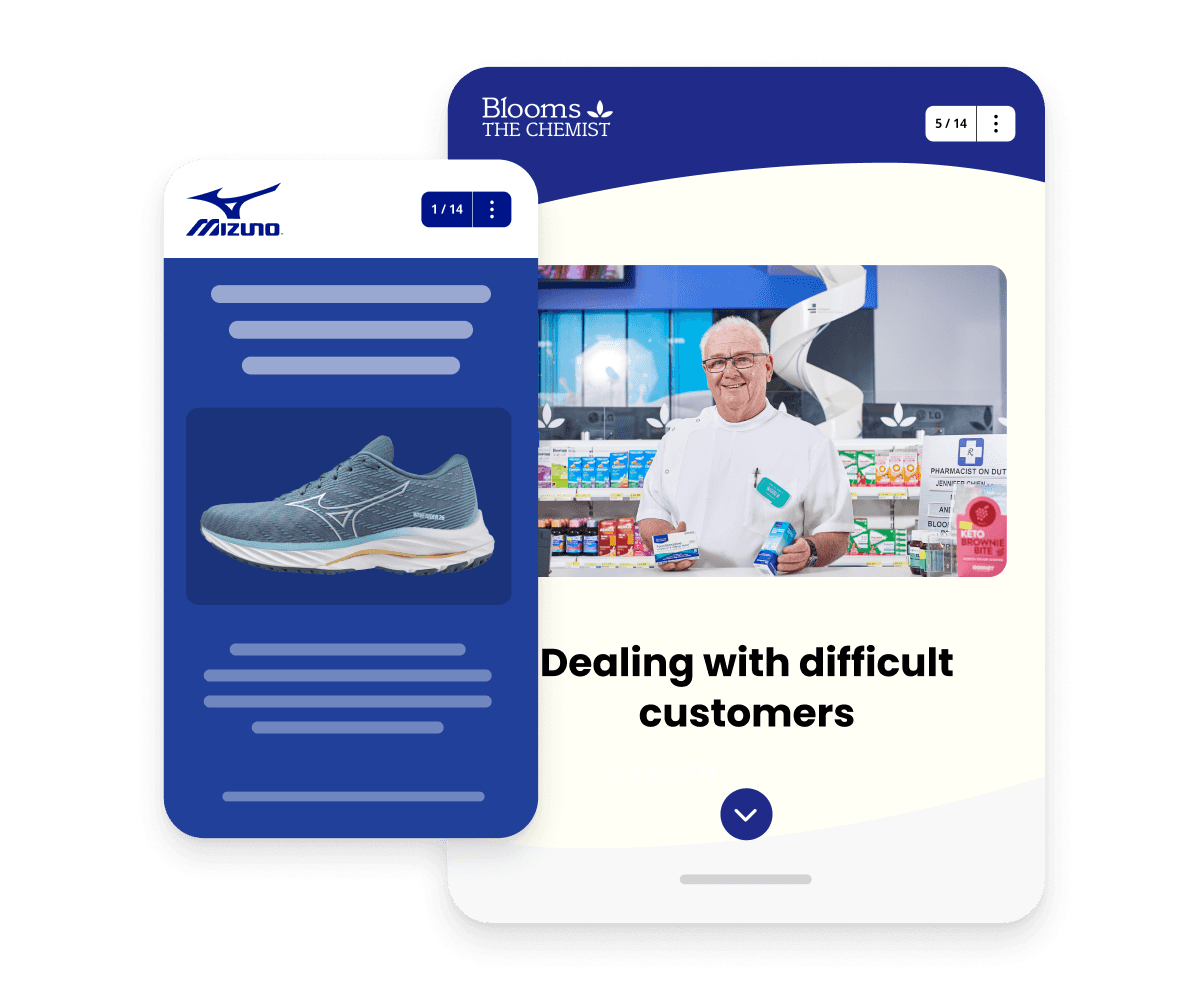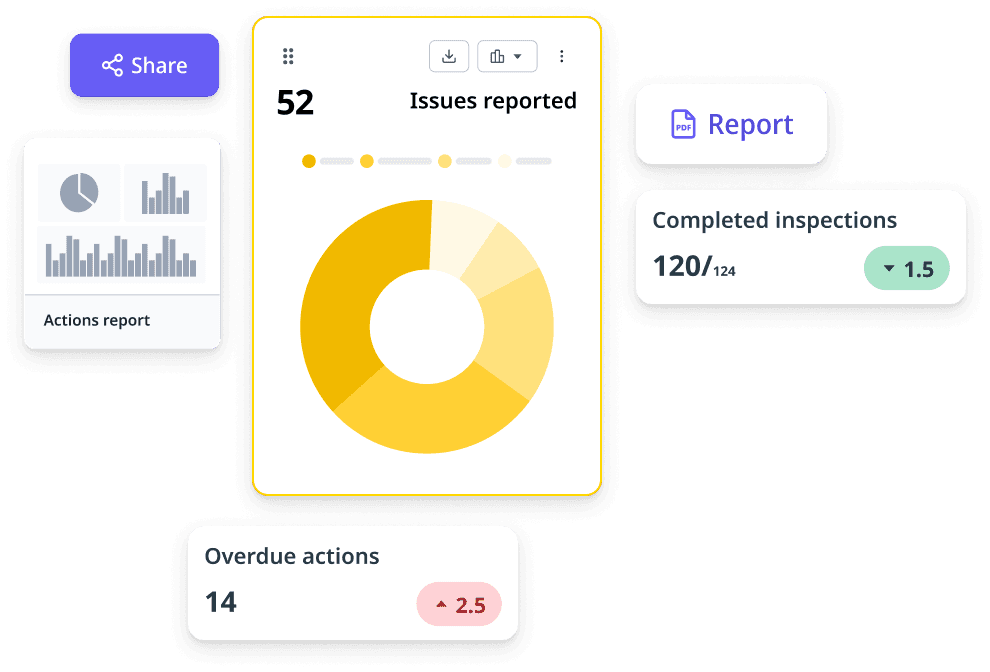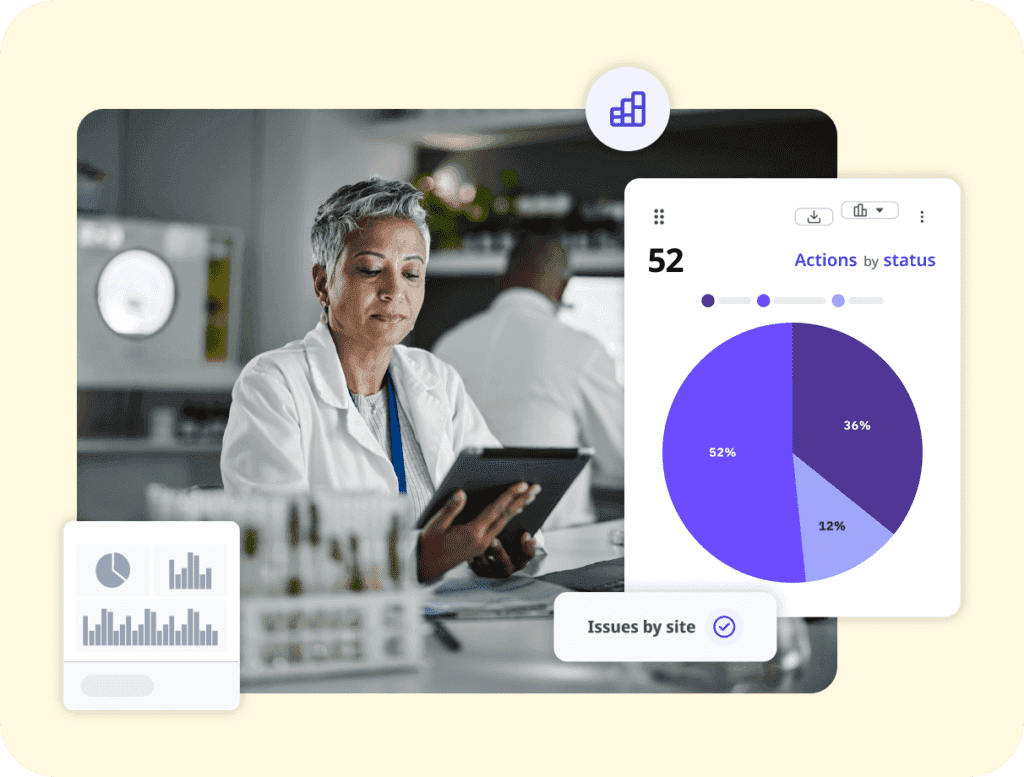Using paper checklists, no one could see results of audits or the risks associated with poor processes. SafetyCulture allows us to see the results immediately and identify where we need to focus.
SafetyCulture has helped businesses around the world achieve
50%
improved efficiency in training*
60%
increased audit efficiency*
49%
savings from safety & compliance improvements*
*Reported in Forrester’s study: The Total Economic Impact™ of SafetyCulture’s Operations Platform

Deliver a consistent customer experience
Equip your teams with the tools and knowledge to deliver a great customer experience consistently. By streamlining processes and conducting timely retail audits, you and your teams can address problems faster, maintain high standards, and drive an efficient shopfloor, ultimately leading to happier customers.
Maintain brand standards
Deliver a great retail experience consistently by streamlining processes across all branches. Digitize brand standard assessments and training courses to communicate changes to operating procedures, visual merchandising, promotions, and more.
Getting SafetyCulture platform out to 760+ shops, with so many employees was surprisingly easy. It’s not often you get that in a rollout of this magnitude. We rolled it out in a matter of weeks.


Automate maintenance workflows
Eliminate costly downtime by ensuring proactive servicing with scheduled inspections and prioritizing repairs with smart alerts. Streamline work order management by tracking service requests, assigning technicians, and monitoring completion statuses to keep retail spaces safe, functional, and customer-ready.
Enable real-time reporting on facility observations
Maintain a seamless, safe, and operational retail environment by addressing concerns before they escalate into major disruptions. Ensure maintenance requests and incident reports are logged in real time and forwarded to the right team for swift resolution.


Centralize and leverage facility data
Gain visibility over your retail spaces by consolidating maintenance schedules, asset records, and space utilization in a single, intelligent dashboard. Unlock actionable insights through trend analysis and predictive analytics, allowing for data-driven decision-making.
Drive improvement across your stores
Explore customizable solutions ready to meet your business needs
EHS
Health & Safety Management
Keep teams safe on the job while promoting a safety culture across your organization.
GRC
Risk & Compliance
Identify, evaluate and mitigate risks to your teams and assets through greater visibility and a data-driven approach.
Quality
Operational Excellence
Optimize processes and drive productivity, greater efficiencies and quality products or services at scale.
ESG
Environment & Sustainability
Digitize SOP’s, reduce waste and adapt sustainability best practices the moment conditions change.
Additional resources
Explore retail resources & solutions
Template
Facility Checklist
Improve your operations in inspections, maintenance, and cleaning activities for any kind of facility using a facility checklist.
Template
Facility Maintenance Checklist
Perform efficient retail facility maintenance checks with a digital checklist to improve operations.
Template
Emergency Evacuation Plan Template
Ensure a safer working environment for your employees by utilizing emergency evacuation plan templates.
Article
Retail Facility Management
Discover the key components, challenges, and best practices in retail facility management to improve operations and customer experience.
Article
Planned Maintenance
Everything you need to know about planned maintenance: how to keep safe at work, find efficient ways to improve system reliability, and improve retail operations.
Article
Emergency Evacuation Plan
Learn everything you need to know about an emergency evacuation plan: what is it, why it’s important, what to include, and how to write an effective emergency evacuation plan.




